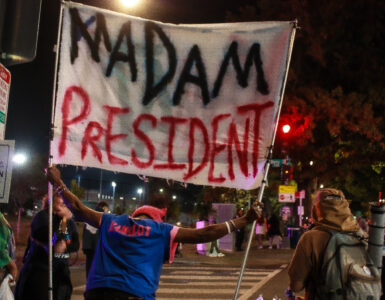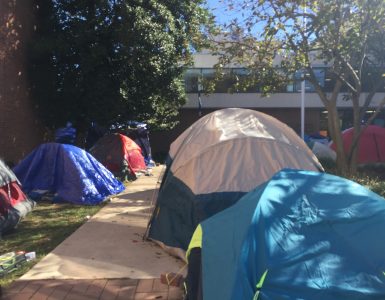The biggest threats to the U.S. democracy happened long before Donald Trump became president, panelists at the Inaugural Democracy Summit in Washington said.
Tuesday’s panel titled “The Threats to Democracy” was one of six at the Democracy Summit featuring well-known journalists, authors, historians, and lawyers. The summit served as the launch of the Center for Journalism & Democracy at Howard University.
Civil Rights lawyer Sherrilyn Ifill said it is important to understand that the biggest threats to U.S. democracy precede Trump.
Ifill pointed to the 2013 Supreme Court case, Shelby County v. Holder, which she said gutted Section 5 of the Voting Rights Act. Shelby allowed other parts of the country “to see what the South was doing with voter suppression and decided to use those techniques,” Ifill said.
Section 5 “was made to prevent ingenious methods of voter suppression that may be used in the future,” said Ifill. It worked by freezing changes in election practices until the US attorney general or the US District Court for the District of Columbia approved them.

In response to the historic turnout of voters during the 2020 presidential election, we saw new voter suppression laws, according to Ifill. Shelby County made it easier for states to make changes aimed at suppressing votes or diluting the voting power of minorities, such as making it illegal to hand out water to people waiting to vote in Georgia.
Ifill also said Florida Gov. Ron DeSantis drew gerrymandered maps for the entire state before the 2022 midterm elections.
“Maybe the Democrats were saved, but Democrats and democracy are not the same thing, ” Ifill said in response to President Joe Biden’s statement asserting democracy was saved in response to the 2022 midterm election results.
Another panelist, Avery Davis-Roberts, the associate director of the Democracy Program, said that as political parties become more divided and voters see their political party as part of their own identity, then the likelihood of violent attacks like the Jan. 6th insurrection will continue to increase.
Rachel Orey, the associate director for Bipartisan Policy Center Elections Project, said the first step in fixing the threats to the U.S. democracy is that political figures must comply with the elections laws that exist and concede when they lose elections.
Started by Howard professor and author of the 1619 Project Nikole Hannah-Jones, the Center for Journalism & Democracy aims to strengthen historically informed, pro-democracy journalism, according to the center’s website. To learn about the new Center for Journalism & Democracy, visit https://cfjd.howard.edu/.










Add comment